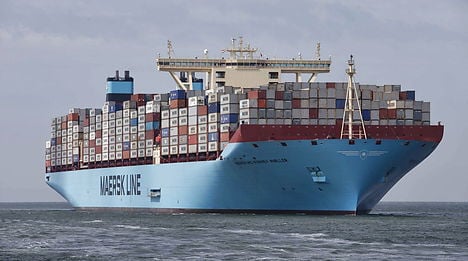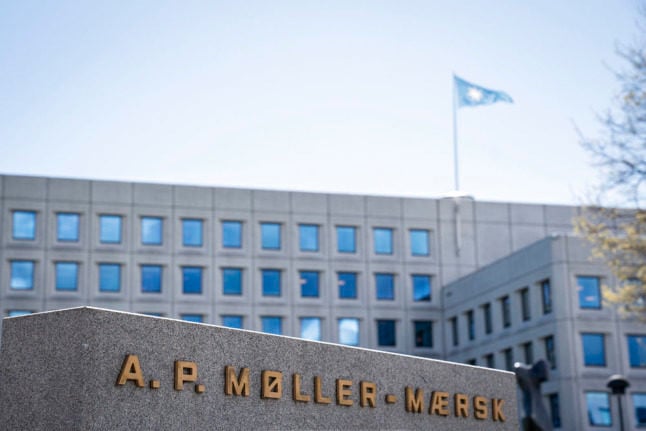MÆRSK
Maersk unveils shipping alliance with MSC
Danish shipping giant joins forces with the Swiss-Italian company just weeks after another collaboration was shot down by Chinese authorities.
Published: 10 July 2014 12:35 CEST

Maersk will partner with MSC on key trade routes between Europe, Asia and North America to counter overcapacity. Photo: EPA/Jerry Lampen/Scanpix
A.P. Moeller-Maersk announced on Thursday an alliance with shipping company MSC on some of the world's busiest cargo routes after China scuppered a planned tie-up between the two companies and CMA.
The Danish shipping and oil conglomerate said it had signed a 10-year alliance with Swiss-Italian MSC on routes between Asia and Europe, and across the Atlantic and Pacific oceans.
Maersk said in a statement that if regulatory approval was given, the alliance would begin operating in early 2015.
The agreement came less than a month after a tie-up between the world's three largest container operators — Maersk, MSC and France's CMA CGM — was blocked by Chinese authorities.
It marked the first time the world's second-biggest economy had blocked a proposed move involving solely foreign entities, and analysts said it showed that concerns over the impact on its own shipping companies — and not their clients — was crucial.
The new agreement will cover 185 vessels, rather than the 255 foreseen in the triple alliance nixed by Beijing, and Maersk Line will contribute 55 percent of the total capacity.
The Danish group said the new agreement, dubbed 2M, would cut costs "through better utilisation of vessel capacity and economies of scale".
Like its predecessor, known as the P3 Network, it will create a system similar to code-sharing agreements among airlines, allowing the companies to put cargo on each others vessels.
But significantly, the ownership structure will be different in that it's a so-called vessel sharing agreement (VSA) without the kind of jointly owned operating company included in the P3 plan.
Sticking point
Observers believe the operating company was a sticking point in talks with China's commerce ministry.
"The Chinese rejected P3 because they viewed it as almost being a de facto merger," said Lars Jensen of Copenhagen-based maritime analysis firm SeaIntel. "My interpretation is that it was an attempt to protect Chinese shipping firms [rather than their customers]."
While the previous alliance was expected to control 40 percent of all cargo from Asia to Europe, the amount would shrink by a number "on the order of ten percentage points" under the new plan, he said.
The exclusion of CMA could help allay Chinese fears over undue market dominance as the French group is already part of a shipping pact with China Shipping Container Lines and United Arab Shipping Company, the future of which would have been uncertain if P3 went ahead. It could also lead to more business for the Chinese company.
"If CMA wants to keep a comprehensive product in the market they need more VSAs, and deepening their collaboration with United Arab Shipping and also with China Shipping Container Lines would fit very nicely into their portfolio," Jensen said.
The financial crisis has weighed on the international shipping market and overcapacity continues to push rates down on many routes.
By sharing infrastructure the two groups "will be able to provide their customers with more stable and frequent services, cover more ports with direct services," Maersk said.
The 2M agreement "does not include joint marine operations. Each party will thus execute their own operations including stowage, voyage planning and port operations," it said.
Each group will also continue to have independent sales, pricing, and marketing operations, and customer service functions.
Url copied to clipboard!


 Please whitelist us to continue reading.
Please whitelist us to continue reading.
Member comments